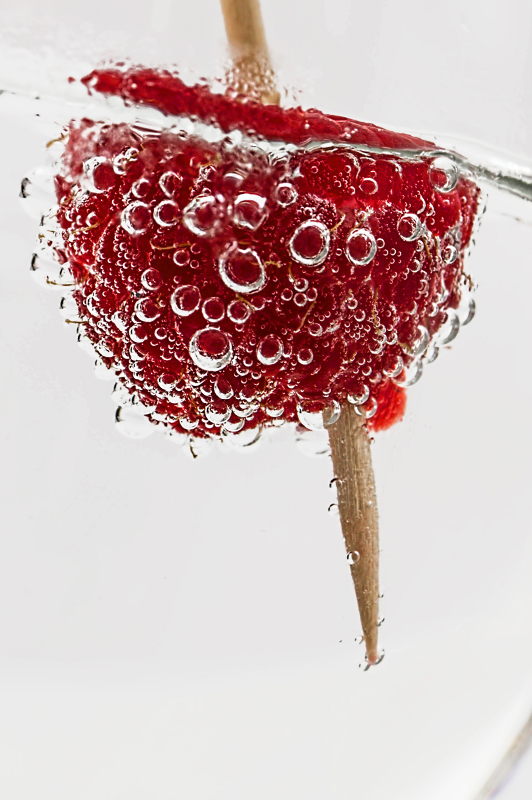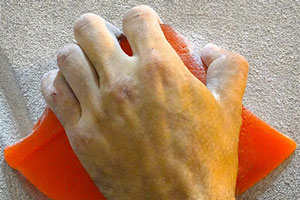How to Tell If You Are Dehydrated Quickly
Dehydration occurs when there is not enough water in your body. Some of the most common symptoms of dehydration are dry mouth, constipation, and dizziness. If you exhibit any of these symptoms regularly, it means you are dehydrated and you need more water. Technically, you should drink water to prevent dehydration, instead of drinking water after you have become dehydrated. In case you show any of these signs of dehydration, it means you haven't been drinking enough water.

How to tell if you are dehydrated
1. The blood test
The blood test can be taken at a hospital or nearest doctor. You are testing the volume of blood in your system and absence of crucial electrolytes to keep you functioning. If your blood pressure is low and your heart rate is high, it could indicate that you are dehydrated.
2. The dry skin test
If you have chronically dry skin, it could indicate a much bigger problem than not moisturizing enough. Any outward deficiencies could indicate an inner health issue caused by lack of nourishment.
3. The pee test
The pee test is the most common way to check for signs of dehydration. If you've ever noticed a difference in the hue of your urine, it is more than a coincidence that it seems darker on certain days.
Hydrate yourself better beforehand and eat healthy to prevent dehydration. You can know how to tell if you are dehydrated by trying some simple dehydration tests. If you fail any of these tests, it might be one of the reasons why your diet could fail. You aren't truly healthy unless you keep up with your water intake.
3 Ways to Check If You Are Dehydrated or Lack Water. See How to Tell If You Are Dehydrated Before It Is Too Late
Dehydration is a very serious problem that is becoming more apparent the more beverages we drink that are not pure unfiltered water. Here is how to tell if you are dehydrated:
1. The Blood Test
The first test to perform when it comes to how to tell if you are dehydrated is the blood test. The purpose of the blood test is to check for electrolyte levels in your blood to ensure that you are properly nourished with the right levels of salt, potassium, and water. This can be a long process of several tests depending on the seriousness of your problem and the cause of dehydration. This is done at your doctor's office.
What Happens to Your Blood When You're Dehydrated
There are several dangerous problems that happen to your circulatory system when you aren't drinking enough water. A few examples of these are:
High Heart Rate
When you are dehydrated, your heart rate becomes faster. It is not uncommon for chronically dehydrated people to suffer from a high heart rate and a heart that occasionally skips a beat.
Blood Pressure
People who are chronically dehydrated also tend to have low blood pressure. When you become dehydrated, your body loses more water than it receives. Blood pressure lowers when an already low blood volume, which lacks water, reduces the amount of oxygen in your bloodstream. Your body can't handle the heat and it could lead to shock or even death if left untreated.
Purpose for Blood Tests
When you are dehydrated, your red blood cells may increase in number because your blood becomes thicker from the lack of water in your system. Measuring the blood content in your body can be a way to measure how severe your dehydration is and decide the steps that need to be taken to help.
2. The Dry Skin Test
This test for how to tell if you are dehydrated is simple. When you are dehydrated, you get dry skin because of the lack of nourishment. Your blood starts to thin out, you lose blood volume and you become dizzy. This leads to very dry skin and a flushing of the face. This is the point when your body is starving for nourishment and it should not be left unattended.
Skin Test Procedure
You can do this test on your own at home. Use two fingers and pull the skin off the back of your hand. Normally the skin will go back to its regular position quickly. But when you are dehydrated and your blood is thinned, your skin will move more slowly than usual. Try the skin test on a day when you are hydrated and on another day when you have failed to drink an adequate amount of fluids. You will notice the difference.
The Danger Zone
Dehydration can hit fast and it can hit hard. The number one indicator is that you have stopped sweating. The time when you stop sweating is the time when your body has stopped producing moisture and your body temperature starts rising uncontrollably. This is the most dangerous situation to be in because you could very easily end up with a heat stroke if you aren't careful.
Dehydration in Cooler Climates
Symptoms may not show up as fast, but it's still possible to suffer from dehydration in the winter time. This can happen from not drinking enough fluids and this causes your body temperature to rise on the inside regardless of the temperature of the outside.
3. The Pee Test
Human urine is the most commonly-known way to check your personal hygiene and hydration levels. It's the most simple, useful, and often most accurate indicator of not only how much water you are drinking, but if you are giving your body the nutrition it requires from your diet. The color and smell of your urine can reveal the state of your health caused by the decisions you have made in the past 24 hours.
Check the Color of Your Urine
The key to how to tell if you are dehydrated lies in your urine. If your pee is mostly clear, then good job, you have been hydrating yourself adequately and should continue to do so. If your urine is normally yellow or darker, it means there is either something wrong with your diet or you need to drink more water. Orange urine is a warning sign, meaning you could be doing some irreversible damage to your body by not paying attention to your fluid intake.
Going that Extra Mile
If you are very concerned by your level of dehydration, you can always get a physical examination from your doctor. They take a urinalysis test. This is often necessary if your urine is abnormally dark or has a strange color or blood, indicating a more serious problem. Even if you aren't dehydrated, getting a urine test from your doctor at least once a year is a good idea to erase any doubt of underlying illness.
The Pee Test is Not Absolute
There are sometimes inconsistencies with the color of our urine. You can't always take it as an accurate indicator of your hydration level. There are many factors along with the water in your body that have an influence on having clear urine. Your diet, humidity, and climate change all affect what color of your urine has. So, just take the pee test as a quick and convenient method and go to your doctor if you want an accurate assessment.






